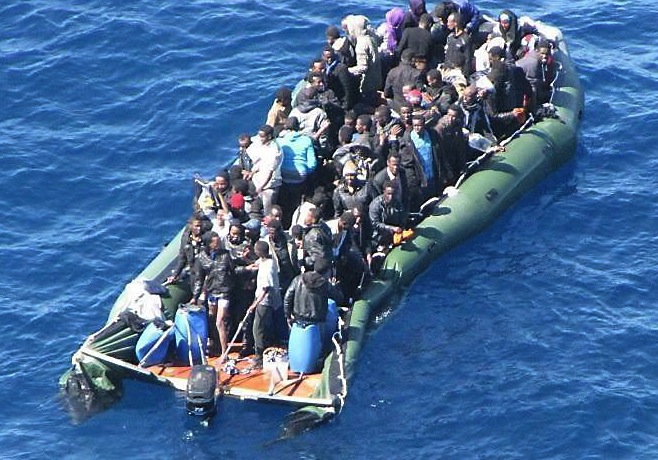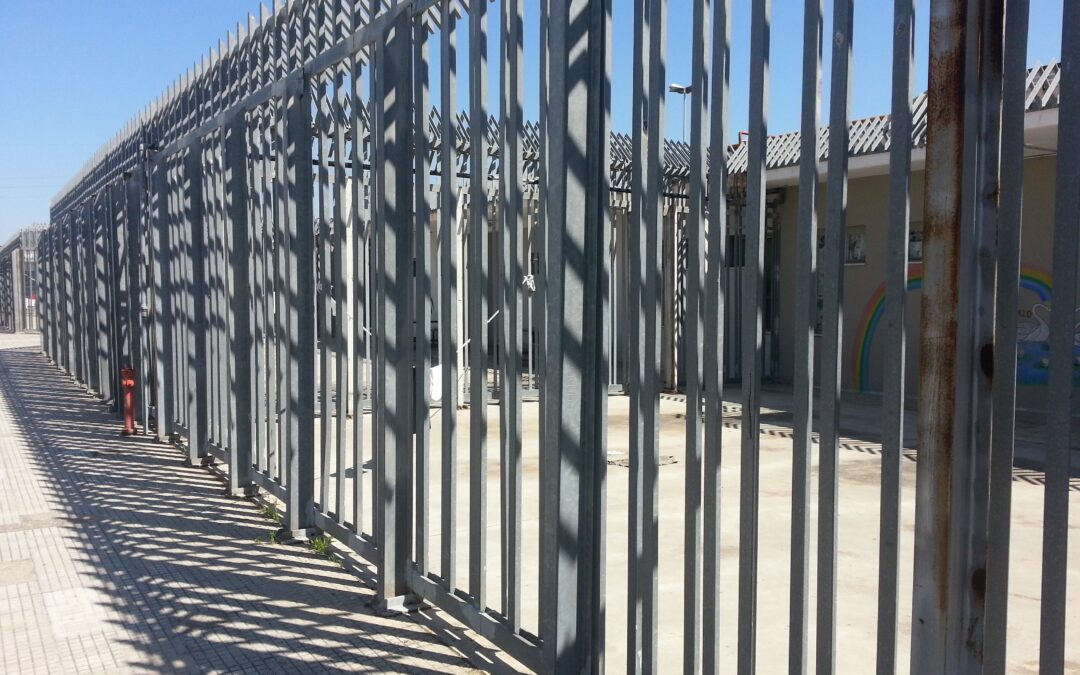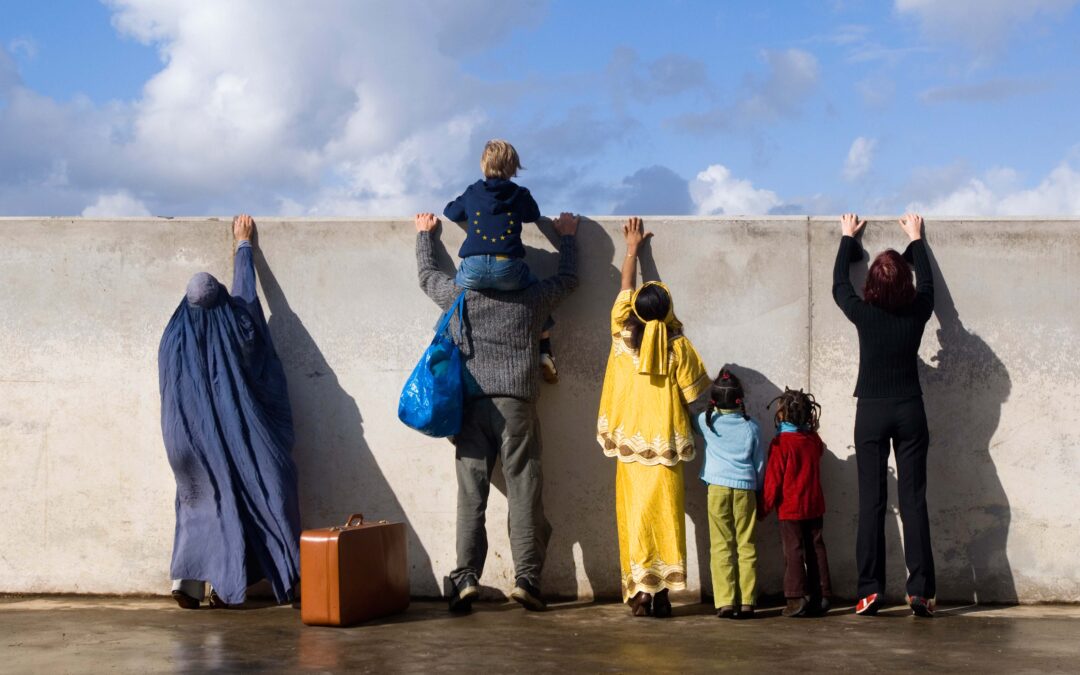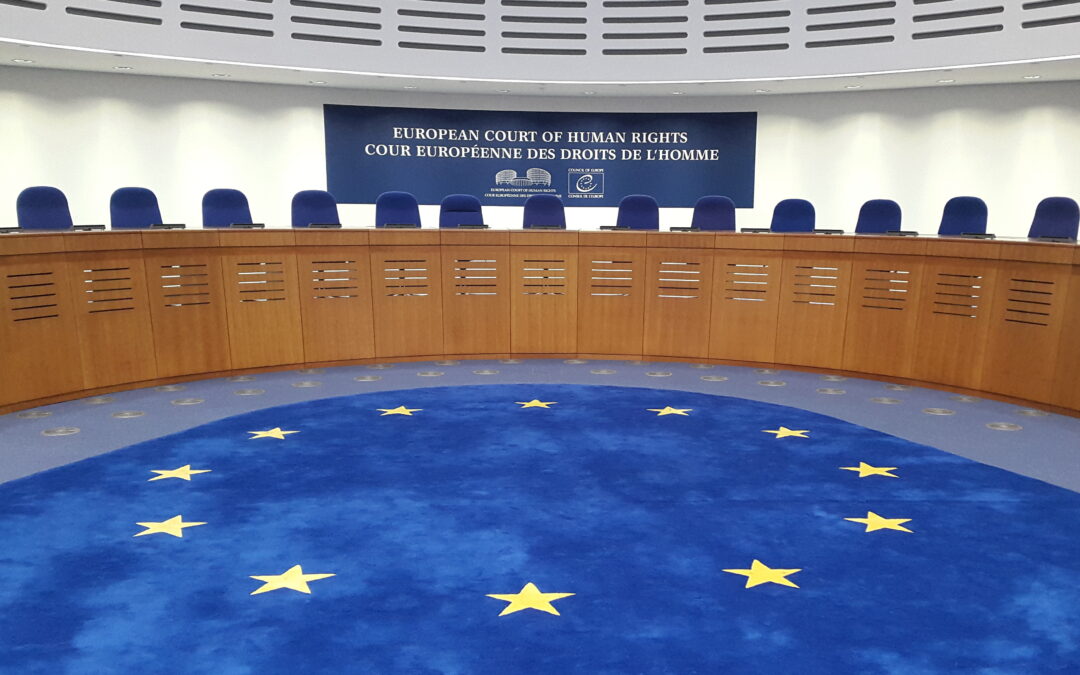
Dec 8, 2020 | News
The ICJ with partners has intervened in European Court for Human Rights case concerning collective expulsions, including of children from Croatia.
The ICJ and partners (European Council for Refugees and Exiles, Dutch Council for Refugees, AIRE Center and the Hungarian Helsinki Committee) intervened today in the case S.B. v Croatia (Application No. 18810/19) at the European Court for Human rights.
The case concerns collective expulsion of migrants, including children, from Croatia to Bosnia and Herzegovina, and excessive use of force.
In the intervention, the organisations have highlighted international legal standards regarding the principle of non-refoulement and prohibition of collective expulsions. They also point to the need to take into account specific vulnerabilities of asylum seekers and children in order to guarantee enhanced safeguards afforded to them under international and EU law.
The organisations also note that in operations aimed at imposing restrictions on freedom of movement or deprivation of liberty to carry out an expulsion, the use of force should only be employed exceptionally and subject to strict necessity and proportionality requirements. The lack of resistance to law enforcement officials, per se renders force unlawful.
Please find the third party intervention here.

Nov 11, 2019 | Advocacy, Cases, Legal submissions
Today, the ICJ, the AIRE Centre, ECRE and DCR have submitted a third party intervention before the European Court of Human Rights in the case of a 2017 rescue operation of migrants, including refugees, in the Mediterranean Sea that involved the SeaWatch rescue vessel.
The case, S.S. and Others v. Italy, concerns the facts occurred during a rescue operation coordinated by the Maritime Research and Rescue Centre of Italy in Rome in the middle of the Mediterranean Sea.
It is currently litigated before the European Court of Human Rights where the victims of human rights violations at the hand of the Libya Coast Guard during the operation are suing Italy for breach of their rights under the European Convention on Human Rights.
During the operation, the involved the rescue boat SeaWatch, a French navy vessel and a Libyan Coast-Guard boat. It is reported certain migrants were taken and ill-treated by the Libyan Coast Guard and sent back to Libya.
It is also alleged that actions undertaken by the Lybian Coast Guard boat during the rescue operation caused the death of several persons to be rescued, including children.
The ones rescued by the SeaWatch vessel could join safety on Italian shores.
The interveners have submitted that, in accordance to the Court’s jurisprudence under the European Convention on Human Rights, other sources of international human rights law and international maritime law standards, Italy had jurisdiction for the purpose of the Convention and had, therefore, to ensure that persons involved in the rescue operation would not be exposed to serious violations of their human rights.
ECtHR-SS_v_Italy_final-JointTPI-ICJECREAIREDCR-English-2019 (download the joint third party intervention)
Video
Watch our interview with ICJ Senior Legal Adviser Massimo Frigo as he further defines S.S. and Others v. Italy and what ICJ intends to do.

Jun 12, 2018 | Advocacy, Cases, Legal submissions
The ICJ and others intervened before the European Court of Human Rights in a case of thirteen undocumented children held in a hotspot in Italy.
The International Commission of Jurists (ICJ), the European Council on Refugees and Exiles (ECRE), the Dutch Council for Refugees and the AIRE Centre jointly intervened in the case of Trawalli and others v. Italy.
In this case, the European Court of Human Rights is called to rule, among other issues, on whether their detention and reception conditions were lawful and/or constituted an inhuman or degrading treatment under the European Convention on Human Rights.
In their third party intervention, the three human rights organizations submitted the following arguments:
a) Taking into consideration migrant children’s status as persons in situations of vulnerability and the principle of the best interests of the child, article 5 ECHR should be read in light of the rising consensus in international law towards a prohibition of detention of children on immigration grounds, in particular based on the consolidated and clear position of the UN Committee on the Rights of the Child. This applies to all instances of deprivation of liberty irrespective of their classification under domestic law.
b) In addition to the above, detention under article 5.1 ECHR will in any event be unlawful and arbitrary where it lacks a clear and accessible legal basis, outlining the permissible grounds of detention as well as the relevant procedural guarantees and remedies available to detainees, including judicial review and access to legal advice and assistance. In light of the obligations of EU Member States under EU law, the interveners submit that detention of asylum seeking children falling within the scope of the recast Reception Conditions Directive will result in a breach of the Convention standards also where it is not used as a measure of last resort, but rather is imposed without consideration of less onerous alternative measures and where the child’s best interests assessment has not been carried out and reflected in this decision.
c) Due to children’s extreme vulnerability, their detention for immigration purposes risks leading to a violation of Article 3 ECHR because of inadequate living conditions and/or to a violation of Article 8 ECHR because of a disproportionate and unnecessary interference with their development and personal autonomy, as protected under Article 8. In this sense, Article 8 must be regarded as affording protection from conditions of detention which would not reach the level of severity required to engage Article 3.
d) When the authorities deprive or seek to deprive a child of her or his liberty, they must ensure that he/she effectively benefits from an enhanced set of guarantees in addition to undertaking the diligent assessment of her/his best interest noted above. The guarantees include: prompt identification and appointment of a competent guardian; a child-sensitive due process framework, including the child’s rights to receive information in a child-friendly language, the right to be heard and have her/his views taken into due consideration depending on his/her age and maturity, to have access to justice and to challenge the detention conditions and lawfulness before a judge; free legal assistance and representation, interpretation and translation. The Contracting Parties must also immediately provide the child access to an effective remedy.
e) In order to fully comply with their obligations under the Convention, Contracting Parties must guarantee that asylum seeking children are accommodated in reception facilities which are adapted to their specific needs and provide adequate material conditions adapted to their age, condition of dependency and enhanced vulnerability. To do otherwise results in a failure by States to comply with their obligations under Article 3 ECHR and their specific obligations under EU law.
Italy-icj&others-Trawalli&others-Advocacy-legal submission-2018-ENG (download the intervention)

Apr 17, 2018 | Advocacy, Cases, Legal submissions, News
The ICJ and other NGOs jointly intervened before the Grand Chamber of the European Court of Human Rights in a case against Spain on the denial of entry of asylum seekers in the enclave of Melilla.
The ICJ, the European Council on Refugees and Exiles, the AIRE Centre, Amnesty International and the Dutch Refugee Council argued that the European Convention on Human Rights prohibits refusal of entry, and/or return of a person to face serious violations of human rights, including of the right to life, the prohibition of torture or inhuman or degrading treatment or punishment, or flagrant denial of justice and of the right to liberty.
They submitted that these refusals of entry are also contrary to the rights set out in the EU Charter of Fundamental Rights (CFR) and the prohibition on non-refoulement found in the 1951 Geneva Convention on the Status of Refugees (Refugee Convention).
The joint interventions presents the argument that, for these prohibitions to be practical and effective and not theoretical and illusory, Contracting Parties must have in place effective systems for identifying people within their jurisdiction who are entitled to benefit from the prohibition on refusing entry.
Spain-ICJ&others-AmicusBrief-ND&NT-ECtHR-GC-legalsubmission-2018 (download the thirty party intervention)

Jan 8, 2018 | Advocacy, Cases, Legal submissions, News
The ICJ and other organizations have intervened today before the European Court of Human Rights challenging expulsions of asylum seekers from Hungary to Serbia.
The International Commission of Jurists (ICJ), the European Council on Refugees and Exiles (ECRE) and the Dutch Council for Refugees have submitted today a third party intervention before the Grand Chamber of the European Court of Human Rights in the case of Ilias and Ahmed v. Hungary.
The case challenges the systematic practice by the Hungarian authorities to send back to Serbia foreign nationals asking for asylum under the pretention that Serbia is a safe third country in which to ask for international protection.
The intervening organizations have argued before the Court that:
- a removal that exposes an applicant to the risk of refoulement and deprives them of protections under international and EU law, is prohibited regardless of whether the decision was taken on the basis of the safe third country concept or the country was included in a “safe third country” list.
- International law requires, inter alia, a rigorous scrutiny of the applicant’s arguable claim of potential prohibited treatment, access to an effective remedy following a negative decision, and access to the rights under the 1951 Refugee Convention.
- Application of the safe third country concept for EU Member States is contingent on the applicant being admitted to the territory and having effective access to a fair asylum procedure in the safe third country
- An assessment of whether restrictions on the freedom of movement of migrants, imposed in a border or international zone, amount to deprivation of liberty under Article 5 ECHR must be based on the impact of these measures on the individuals concerned.
Hungary-ECtHR-amicusbrief-cases-Ilias&Ahmed-ICJ&others-2018-ENG (download the third party intervention)
Background
Ilias Ilias and Ali Ahmed, both Bangladeshi nationals, fled their home country in arrived at the Hungarian-Serbian border on 15 September 2015 after having briefly crossed through Serbia during their trip.
Having asked immediately for asylum in Hungary, they were confined for days in a transit zone, a ” a confined area of some 110 square metres, part of the transit zone, surrounded by fence and guarded by officers”.
Their applications were rejected on the very same day of their application on the grounds that they could have asked for asylum in Serbia, considered by Hungary a safe third country, and appeals were rejected.
They were removed to Serbia on 8 October 2015.









